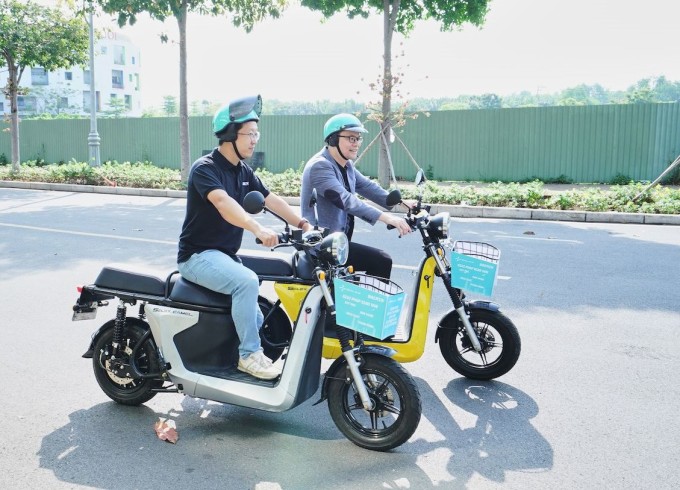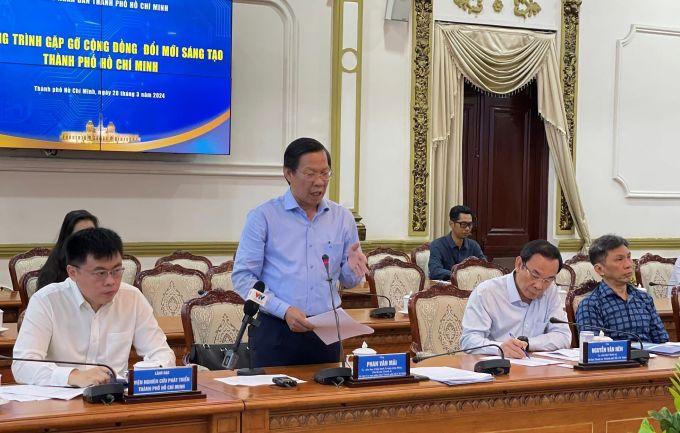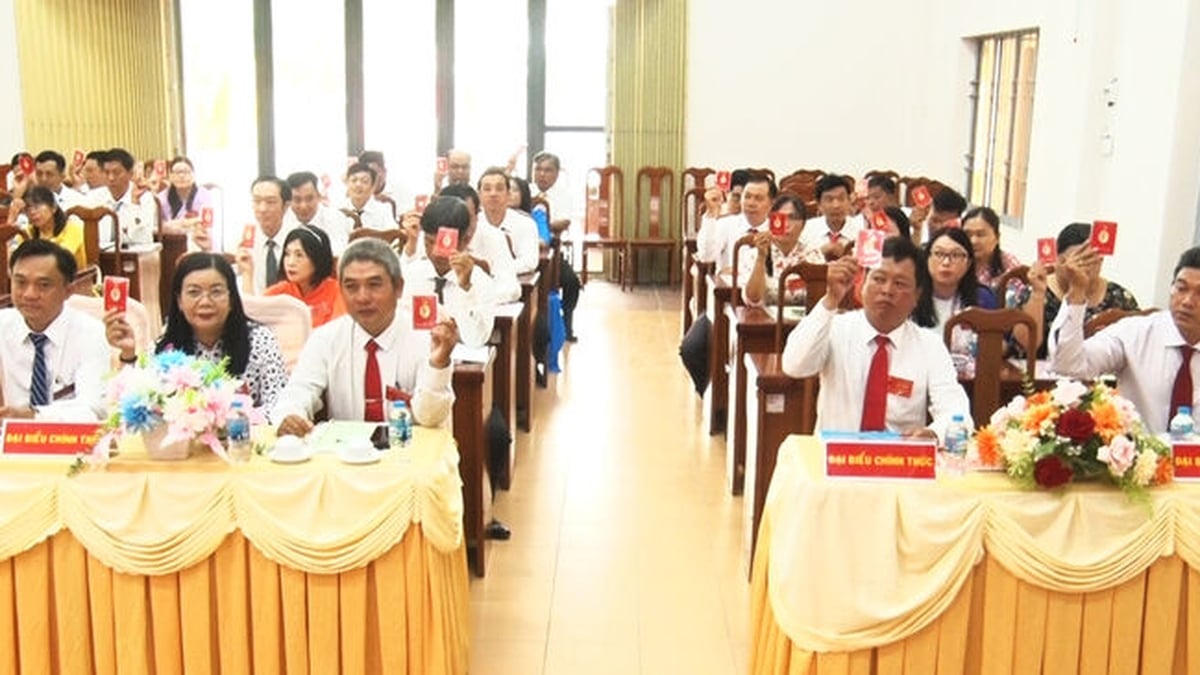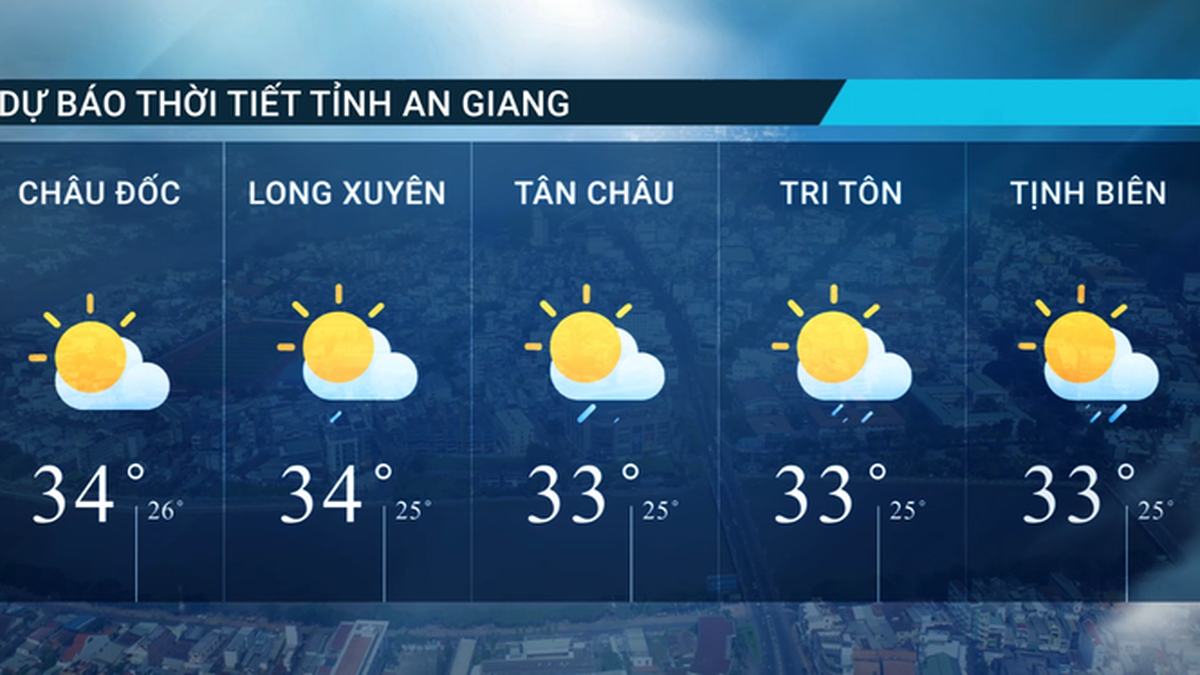Dr. Nguyen Huu Phuoc Nguyen proposed that the city support the conversion of 1 million gasoline motorbikes to electric vehicles, prioritizing the transportation sector, to be implemented in the next 5 years.
The opinion was expressed by Dr. Nguyen, CEO of Selex Motor - an electric vehicle manufacturing startup, at the program where Ho Chi Minh City leaders met with the innovative startup community on the morning of March 28.

Dr. Nguyen Huu Phuoc Nguyen (right) experiences electric vehicles with partners. Photo: Selex
In the 5 years since he started his business, Mr. Nguyen's startup has mastered the technology to produce electric motorbikes with a localization rate of 80%. With the goal of applying Vietnamese technology to the green transformation of the transportation sector, Mr. Nguyen proposed that the city convert about 1 million gasoline motorbikes to electric vehicles, along with building 1,000 charging stations in the area and having support mechanisms for this.
According to Mr. Nguyen, this proposal is aimed at motorbike transport businesses and technology-based motorbike taxi drivers. According to him, these people operate 5 times more frequently than normal people, with high emission levels. They are also the group most willing to convert if there are support policies from the government.
On the business side, the CEO of Selex Motor proposed a mechanism to facilitate loans for electric vehicle manufacturers. Currently, these businesses are facing difficulties because banks do not have a financial model for electric vehicles and have not yet established pricing for this product. He said that this is a bottleneck that makes it difficult for businesses to access finance to expand and increase the scale of vehicle production.
Mr. Pham Duc Nam Trung, Director of Finance and Operations of Dat Bike, shared that there was an opinion that electric vehicles have lower performance than gasoline vehicles, so it is difficult to convert. However, in reality, this is not the case and this is proven by the products provided by Vietnamese enterprises. In addition, users in the transportation industry have a high frequency of driving, so they always face the fear of the distance traveled per charge. This leads to the need for a charging station infrastructure with large coverage.
Mr. Trung suggested that there should be a tax policy to attract people and businesses to switch to electric vehicles. In fact, the current average cost of buying a motorbike is about 30 - 40 million VND, of which about 10% is taxes and fees. If the government has a policy to exempt these taxes and fees or a loan mechanism for people to buy electric vehicles, it will stimulate demand. He analyzed that when using electric vehicles compared to gasoline vehicles, the monthly fuel savings of customers (the difference in charging costs compared to filling up with gasoline) is equivalent to the bank interest when buying a vehicle. If this loan is fully funded, users will save money when using electric vehicles.

Chairman of Ho Chi Minh City People's Committee Phan Van Mai shared the city's green growth orientation at the meeting. Photo: Ha An
Chairman of the Ho Chi Minh City People's Committee Phan Van Mai said that the city is urgently completing the strategy and policies on green growth until 2030, expected to be submitted to the People's Council in July. The policies aim to impact producers and consumers in areas such as green energy, green transportation, rooftop solar power, carbon credits... Regarding the conversion of 1 million electric motorbikes or the conversion of some consumer behaviors towards green, Ho Chi Minh City leaders said that the city will study and hope that startups will continue to contribute ideas for completion.
Mr. Mai hopes that the innovative startup community will continue to accompany the city government in contributing to policy development and creating an environment to build an innovative startup ecosystem. This is part of the goal of making Ho Chi Minh City a center for innovative startups based on science and technology in the ASEAN and Asia regions.
In March, the Ho Chi Minh City Institute for Development Studies proposed a policy to support people using electric vehicles in Can Gio district with financial support, interest rates, reduced registration fees, and license plate issuance when switching to electric vehicles.
Ha An
Source link

































































































Comment (0)